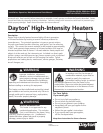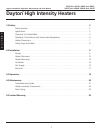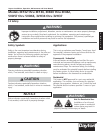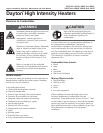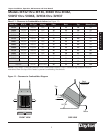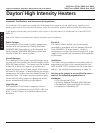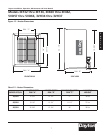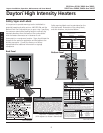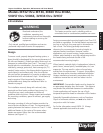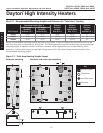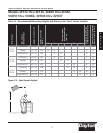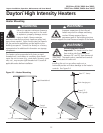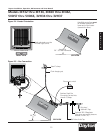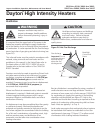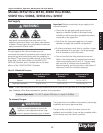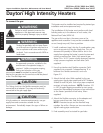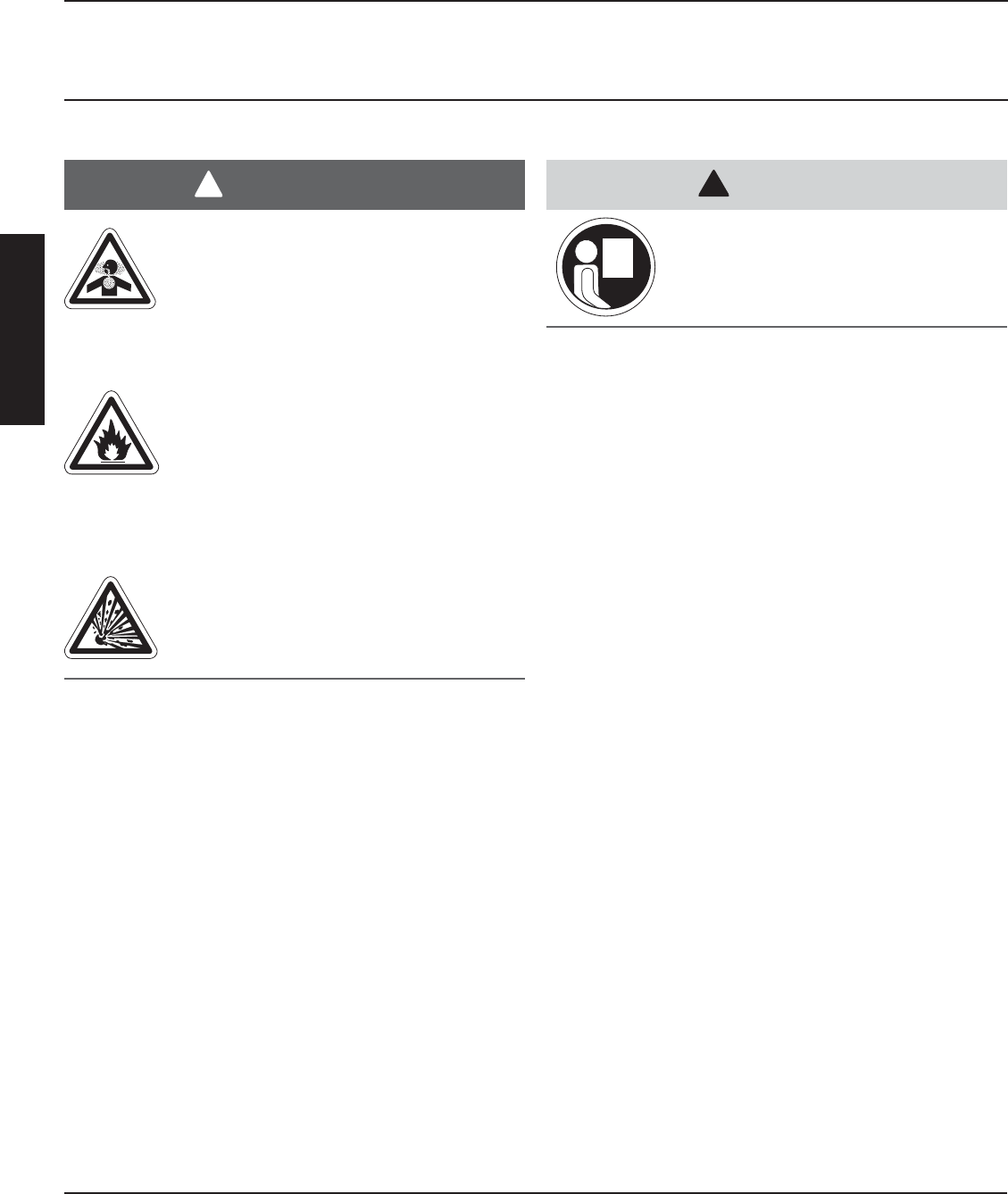
CAUTION
!
Dayton Installation, Operation, Maintenance and Parts Manual
Dayton High Intensity Heaters
®
3E132 thru 3E134, 3E460 thru 3E462,
5VD57 thru 5VD66, 3VH34 thru 3VH37
E
N
G
L
I
S
H
4
Clearance to Combustibles
A critical safety factor to consider before installation is
the clearances to combustibles. Clearance to
combustibles is defined as the minimum distance you
must have between the infra-red surface, or reflector,
and the combustible item. Considerations must also be
made for moving objects around the infra-red heater.
The following is a partial list of items to maintain
clearances from:
Combustible Items Include:
• Wood
• Paper
• Fabric
• Chemicals
• Wall or roof insulation
Moving Objects Include:
• Overhead doors
• Vehicles on lifts
• Cranes
• Hoists
• Car wash equipment
When installing the infra-red heater system, the
minimum clearances to combustibles must be
maintained. These distances are shown in Chart 1.1 and
on the heater. If you are unsure of the potential hazards,
consult your local fire marshall, fire insurance carrier or
other qualified authorities on the installation of gas fired
infra-red heaters for approval of the proposed
installation.
Hazards Include:
For maximum safety the building must be evaluated for
hazards before installing the heater system. Examples
include, but are not limited to:
• Gas and electrical lines
• Combustible and explosive materials
• Chemical storage areas
• Areas of high chemical fume concentrations
• Provisions for accessibility to the heater
• Adequate clearances around air openings
• Combustion and ventilating air supply
• Vehicle parking areas
• Vehicles with lifts or cranes
• Storage areas with stacked materials
• Lights
• Sprinkler heads
• Overhead doors and tracks
• Dirty, contaminated environment
WARNING
!
!
Signs shall be posted specifying the
maximum permissible stacking height in
order to maintain clearances to
combustibles.
Improperly connected gas lines may result
in serious injury and death, explosion,
poisonous fumes, toxic gases,
asphyxiation. Connect gas lines in
accordance to national, state, provincial
and local codes.
Placement of explosive objects, flammable
objects, liquids and vapors close to the
heater may result in explosion, fire,
property damage, serious injury or death.
Do not store, or use, explosive objects,
liquids and vapor in the vicinity of the
heater.
Failure to comply with the published
clearances to combustibles could result in
personal injury, death and/or property
damage.



